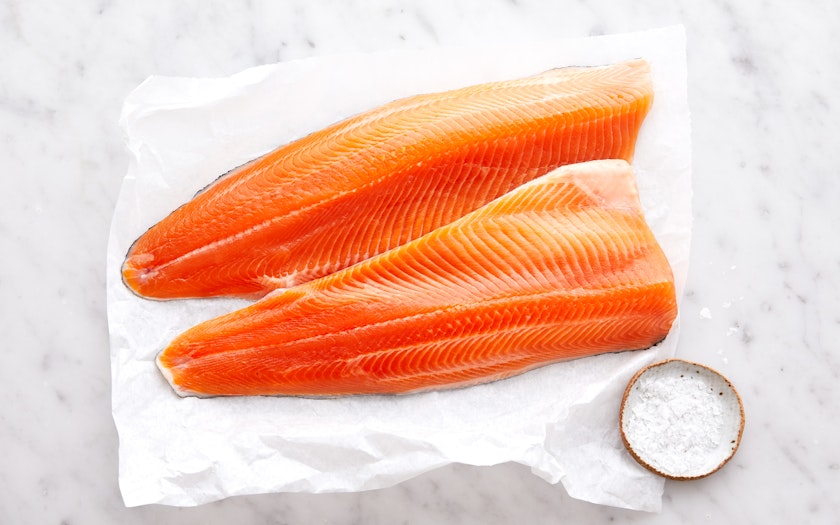
Can the traditional fisheries and aquaculture work together to create a sustainable partnership that protects our marine environment AND addresses the growing need for fish resources? This company thinks so. Check them out at http://twoxsea.com
Here's some of what they say:
Sustainable is a word that, as of late, has been misused to suit the needs of some just trying to increase profits. TwoXSea was founded on honesty, transparency, and the following six sustainability criteria:
- The harvesting of all fish we sell has left more than enough fish for future generations, and caused no habitat destruction – none.
- There is no loss of marine life through incidental catch, “Bycatch”, in the harvesting process.
- Farming products we sell did not involve: use of chemicals or medicines, adverse use of feed from wild sources, introduction of non-native species into local fisheries, or inflict economic adversity on families and communities.
- The person who caught the fish was paid fairly for the work they did to bring it to you.
- The fish can be traced back to the vessel that caught the fish, and proper guarantees are in place regarding the honest origin of the fish.
- The fish comes from as local an area as possible, thus reducing carbon emissions and restoring regional cuisine.
TwoXSea is working towards a better, renewable future that ensures seafood for generations to come. We welcome your questions, insights and opinions – we can’t do this alone!
What you buy & when you buy makes an enormous difference to our ocean. These sources not only come from healthy fisheries, but they are also caught with the strictest standards of catch methods.
The catch methods we support do not deplete the resource, take unwanted by-catch or harm habitats. As the seasons change so should our buying habits; intelligent management of each fishery is based upon scientific evidence of how much each one can yield.
Choosing fish that is in-season gives each species the time to fully recover from our demands for food.
McFarland Springs is the world’s first deliberate collaboration to responsibly farm sustainable fish. Most farmed fish are fed a diet that contains fishmeal; wild fish taken from the ocean, ground up, dried, and fed to farmed fish. This practice of removing wild fish that other marine life rely on as food is not sustainable and must be stopped if we hope to protect the delicate life balance needed to sustain healthy marine ecosystems.
TwoXSea began testing our fishmeal alternative in 2009 to produce a farmed trout using a nearly pure vegetarian diet of algae, and plant-based products. Originally the feed contained approximately 3% fish oil, which has since been completely eliminated to create a farmed trout that is raised on a 100% vegetarian diet. The results we achieved are stunning and a true culinary delight. The beautifully balanced sweet flavor, superior texture and lighter firm flesh almost perfectly mirror that of a wild trout. The Omega 3 levels are higher than that of wild salmon as well.
“We realized, a bit too late, that the previous trout we were buying were neither vegetarian nor insectivore.” said Kenny Belov of TwoXSea. “Our choice to establish a renewable and responsible source of seafood was driven by the hope that it is still possible to farm seafood without destroying our oceans future. I’m happy to say it is possible.”The trout farm where we grow McFarland Springs trout is an environmental dream. The farm’s extremely cold water supply comes from the natural spring headwaters of the Susan River in Northern California. These pristine waters are free of the pesticides and contaminates often found in other water sources. We also utilize the spring waters to lower our carbon footprint by generating hydroelectric power to supply all the electricity needs for the farm. Our trout are hand harvested and processed immediately, instead of machine processing as is customary in most farming operations.
“This is a very rare and sadly, fairly limited operation. It isn’t something you can scale for a Fast Food Nation, but it is a great example of what we can do when we choose to put the environment above margins.” Belov commented. “I hope this is the first of many.”Farming fish in a manner that does not deplete other resources is essential. The ocean is the last remaining hunting ground of wild food and has been pushed beyond the edge of its capacity by overfishing, habitat destruction and pollution. We must develop farmed fish as a source of protein in order to support growing demand for seafood Worldwide. The key however, is to do so in a responsible fashion using renewable and sustainable resources.
“California is home to 10 species of native trout, one of which – the California Bull Trout – is already extinct.” adds Belov. “The fact that we are able to offer the Rainbow Trout native to Eagle Lake in a safe and renewable fashion is fantastic. Much like the ocean, we have to manage the wild fisheries of inland lakes and streams to take the pressure off these species if we hope to see them survive.”
No comments:
Post a Comment